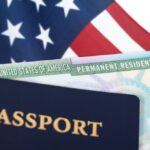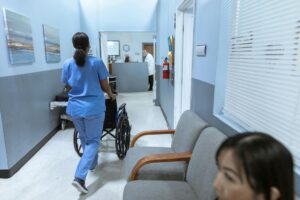Many service providers have questions about federal benefits eligibility for Ukrainian and Afghan Humanitarian Parolees who have arrived in the U.S. in recent months. Most Ukrainians and Afghans who receive humanitarian parole in the US on or after October 1, 2023 are not eligible for federal benefits, including Office of Refugee Resettlement (ORR) benefits. This blog post answers some frequently asked questions on this topic.
What do I need to know?
Ukrainians and Afghans who are granted parole in the U.S by the Department of Homeland Security (DHS) on or after October 1, 2023. are not eligible for mainstream federal benefits, including Office of Refugee Resettlement (ORR) refugee program benefits, with a few limited exceptions.
Mainstream federal benefits include but are not limited to Temporary Aid for Needy Families (TANF), Medicaid, Supplemental Nutrition Assistance Program (SNAP), and Supplemental Security Income (SSI). ORR refugee program benefits include but are not limited to Refugee Cash Assistance (RCA), Refugee Medical Assistance (RMA), and Refugee Support Services (RSS), which include services such as employment and workforce readiness, English language and vocational training, and certain types of case management.
Note: Afghans paroled into the U.S between July 31, 2021 and September 30, 2023 and who have a pending application for re-parole, or who are being considered for extension of parole (i.e., have a pending application for asylum or adjustment of status), are still eligible for ORR refugee program benefits and services. See ORR Policy Letter 23-06 and PL 23-06 FAQ.
Why are parolees who enter on or after October 1, 2023 ineligible for federal benefits?
The funding bill passed by the U.S. Congress that provides temporary funding to run the federal government until January and February 2024 limits eligibility for federal benefits to parolees who entered the U.S. on or before September 30, 2023. Any changes to eligibility for federal benefits will require congressional action.
Are there any exceptions?
Yes. Certain relatives of eligible parolees may be eligible for federal benefits even if they enter on or after October 1, 2023. See the below table for a summary:

Who does this impact?
This should have minimal impact on Afghans currently entering the U.S., as the majority of Afghans are entering through the U.S. Refugee Admissions Program (USRAP) or as Special Immigrants. The largest impact will be on newly arriving Ukrainians entering through the Uniting for Ukraine (U4U) program. All Ukrainians entering through U4U have supporters who agree to assist arriving humanitarian parolees. However, the lack of eligibility for federal benefits creates significant barriers for basic needs such as food and medical care and puts additional stress on supporters who may not have the same proficiency in navigating systems and connecting to resources as staff at resettlement agencies.
What about employment authorization?
Afghan and Ukrainian Humanitarian Parolees who arrive on or after October 1, 2023 will still be eligible to work in the U.S., but most will not be considered “work authorized incident to parole.” They will need to apply for and receive work authorization before they are legally allowed to work. The only exception is for Ukrainian parolees whose unexpired Form I-94 contains a class of admission of “UHP.” These individuals are employment authorized incident to parole regardless of their date of entry to the U.S.
How can people who are ineligible find alternative services and resources?
Refugees, immigrants, and migrants who do not qualify for federal benefits may still be able to access basic needs and other services and supports through state-funded or privately funded programs. People can get help finding various services, supports, and resources by calling 2-1-1, which operates in all 50 U.S. states. Interpretation is provided, as is TTY for those that are experiencing deafness or are hard of hearing. People needing interpretation should say, “No English. I Speak [Name of Language]” and then wait on the line. People can also search for support online at findhelp, which is available in dozens of languages.
Where can I learn more?
Office of Refugee Resettlement (ORR):
- Dear Colleague Letter 24-01: Eligibility for Refugee Resettlement Program benefits and services: Parolees from Afghanistan or Ukraine
- Fact Sheet: Benefits for Ukrainian Humanitarian Parolees
- Fact Sheet: Benefits for Afghan Humanitarian Parolees Fact Sheet
- Fact Sheet: Benefits for Afghan and Iraqi Special Immigrant Visa (SIV) Holders or SQ/SI Parolees (PDF)
- Policy Letter 23-06: Continuation of ORR Services for Certain Afghans Who Have Filed for Re-Parole, Asylum, or Adjustment of Status
- Policy Letter 23-06 FAQ
U.S. Citizenship and Information Services (USCIS):









